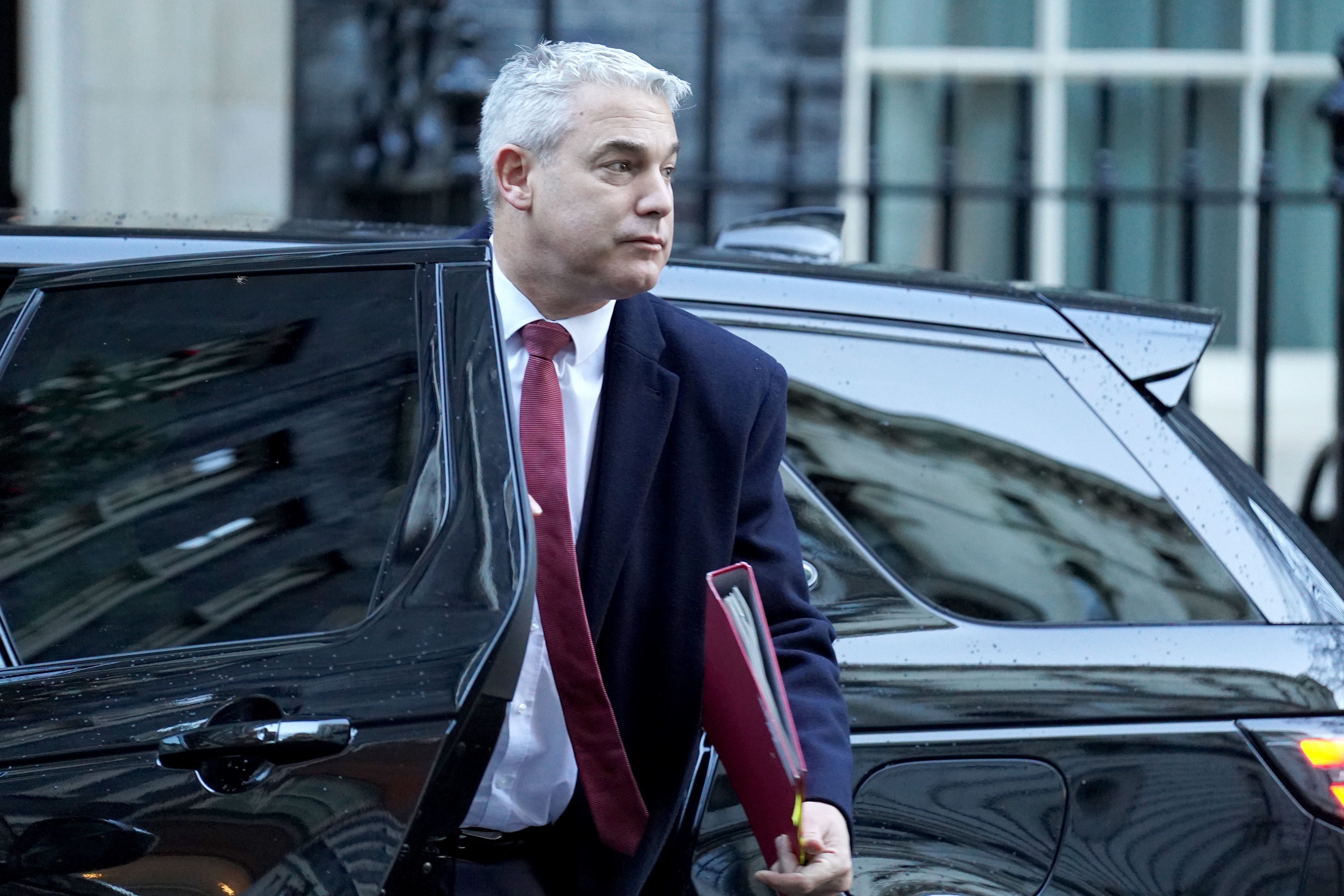Health Secretary does not rule out plan to backdate next year’s NHS pay offer
Steve Barclay, who spent part of Monday meeting trade union officials, described the discussions as ‘productive’ during a visit to a London hospital.

Your support helps us to tell the story
From reproductive rights to climate change to Big Tech, The Independent is on the ground when the story is developing. Whether it's investigating the financials of Elon Musk's pro-Trump PAC or producing our latest documentary, 'The A Word', which shines a light on the American women fighting for reproductive rights, we know how important it is to parse out the facts from the messaging.
At such a critical moment in US history, we need reporters on the ground. Your donation allows us to keep sending journalists to speak to both sides of the story.
The Independent is trusted by Americans across the entire political spectrum. And unlike many other quality news outlets, we choose not to lock Americans out of our reporting and analysis with paywalls. We believe quality journalism should be available to everyone, paid for by those who can afford it.
Your support makes all the difference.The Health Secretary has not ruled out backdating next year’s NHS staff pay settlement, as the Government grapples with a way to end the dispute with healthcare workers over pay.
Steve Barclay, who spent part of Monday meeting trade union officials in a bid to broker a solution, described the discussions as “productive” during a visit to St Charles Hospital in west London, even as he hit out at the accusation that the Government had demanded staff “justify” a payment through productivity improvements.
Multiple reports have suggested that unions put forward a call for the 2023/24 pay deal to be backdated to January in order to create a bigger uplift for 2022/23.
Speaking to broadcasters, Mr Barclay said that the “key focus of the meeting was to look at next year’s pay review body and the evidence that we submit to that”.
He said: “We want to work constructively with the unions in terms of the evidence that is submitted there, and obviously building on what has come out from the OBR (Office for Budget Responsibility) and what is affordable to the wider economy.
“But of course, as part of that meeting, we also listened to the trade unions in terms of their concerns in respect of this year. That’s part of a wider discussion that is happening across Government where other departments, other secretaries of state, are meeting with their trade unions.”
Mr Barclay said he would take the message from trade unions back to Chancellor Jeremy Hunt.
The Royal College of Nursing (RCN) and Unite criticised the approach taken by the Government at the meeting, but Unison said there had been an “acknowledgment” from Mr Barclay during the talks that avoiding strikes over next year’s pay settlement would “involve a reach-back” into the current pay year.
The Health Secretary insisted during the visit that the Government was “particularly focused on the pay review body which will start from April”.
“That is the right approach and we’ve been consistent in that, but at the same time we’re engaging, we’re listening, we’re working with trade union colleagues, because we recognise there’s very real pressure on the health system at the moment.
“And as part of that, obviously, it is not helpful to have the strikes tomorrow. That is a concern in terms of ambulances.”
The Health Secretary did fire back at Unite negotiator Onay Kasab, who on Monday accused the Government of being focused on productivity as part of any pay discussions.
“Well, that wasn’t said in the meeting and the trade union leader that made those comments outside the Department of Health, bizarrely, wasn’t actually in the meeting on which he was commenting,” Mr Barclay said.
He insisted there was “common ground” with the trade unions in some areas, including ensuring that highly-trained clinicians, particularly nurses, do not have to divert time to administration and “frustrating tasks” amid the crisis in the health service.
He added: “That’s very different to the comments made by someone who wasn’t actually in the room about a meeting that they haven’t actually attended.”
After the talks, trade unions said that not enough had been achieved to see strikes called off.
Mr Barclay said there would be “pressure” on the system during the ambulance strike on Wednesday, but urged anyone with urgent health concerns to call NHS 111.
“A key part of my visit today is to see the fantastic work that the team are doing here in London, Central and West – they take over 600,000 111 calls a year and they do a formidable job in terms of dealing with urgent calls,” he said.
“Of course, if people have an urgent call issue, it is important that they call 111. If they have an emergency, then of course 999.
“But there will be pressure on the system tomorrow.
“So it’s important that people are bearing that in mind in terms of calling 111 if it’s an urgent matter.”